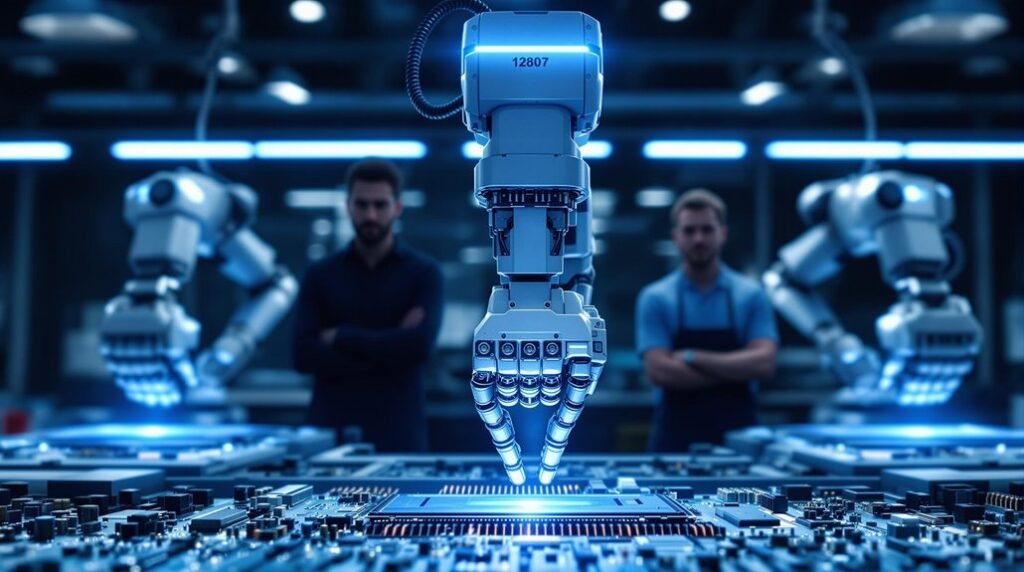Manus AI represents a significant breakthrough in agentic artificial intelligence, demonstrating advanced capabilities in autonomous decision-making and complex problem-solving. The system operates with heightened contextual awareness, adapting strategies based on real-time data interpretation across multiple sectors, including healthcare and supply chain management. While facing technical and ethical challenges, Manus AI’s performance surpasses previous AI models in operational efficiency and task automation. This advancement marks an essential step toward understanding the full potential of autonomous systems.
The emergence of Manus AI marks a significant breakthrough in agentic artificial intelligence, representing a new generation of fully autonomous systems. This advancement demonstrates unprecedented capabilities in independent decision-making, adaptive behavior, and complex problem-solving, setting new benchmarks in the field of artificial intelligence. Manus AI’s ability to analyze data, generate reports, and automate workflows without constant human supervision showcases the transformative potential of agentic AI applications across various industries. Additionally, its effectiveness in sales forecasting provides organizations with tools to anticipate market demands and enhance strategic planning. Operational AI technologies facilitate data-driven decision-making, which is crucial for this advanced performance.
Unlike traditional AI systems that operate within rigid parameters, Manus AI exhibits remarkable contextual awareness and adaptability. The system’s capacity to interpret real-time data and adjust strategies accordingly has proven particularly valuable in dynamic environments such as supply chain management and healthcare automation. Moreover, the integration of AI in preventive healthcare could significantly enhance outcomes by enabling earlier interventions based on data analysis. Its multi-task capabilities enable seamless coordination of various operations, from data analysis to workflow optimization, demonstrating superior performance compared to previous state-of-the-art models. The platform’s goal-focused operation ensures specific outcomes are achieved rather than simply completing individual tasks. Additionally, AI’s ability to automate back-office activities reduces operational costs and enhances resource efficiency. Furthermore, the adaptation of practices influenced by Generative AI can lead to self-documenting code and uniform structures within software applications.
Manus AI breaks free from conventional limitations, delivering adaptive intelligence and seamless coordination across complex operational environments with unprecedented efficiency.
The implementation of agentic AI through platforms like Manus has revolutionized enterprise solutions, offering organizations autonomous end-to-end systems that achieve business outcomes with minimal human intervention. In supply chain operations, these systems effectively respond to disruptions by analyzing multiple variables and implementing corrective measures in real-time. Similarly, in healthcare settings, agentic AI coordinates complex tasks, optimizing resource allocation and improving operational efficiency.
Despite these achievements, the development of agentic AI faces notable challenges. Technical issues, including looping errors and performance inconsistencies, continue to require attention from developers. The implementation of such autonomous systems also raises important questions about regulatory compliance and ethical considerations, necessitating careful oversight and established guidelines for deployment.
The success of Manus AI represents a significant milestone in the evolution of artificial intelligence, demonstrating the potential for truly autonomous systems to handle complex, multi-step tasks that previously required significant human involvement. While public skepticism about fully autonomous AI systems persists, the practical benefits demonstrated by Manus AI in real-world applications suggest a promising future for agentic AI technology.
As research continues and technologies mature, the integration of agentic AI systems like Manus into various sectors is expected to accelerate. This progression marks not only a technical achievement but also a paradigm shift in how organizations approach automation and decision-making processes. While challenges remain, the demonstrated capabilities of Manus AI indicate a noteworthy step forward in the development of autonomous artificial intelligence systems capable of handling increasingly complex tasks with reduced human oversight.

